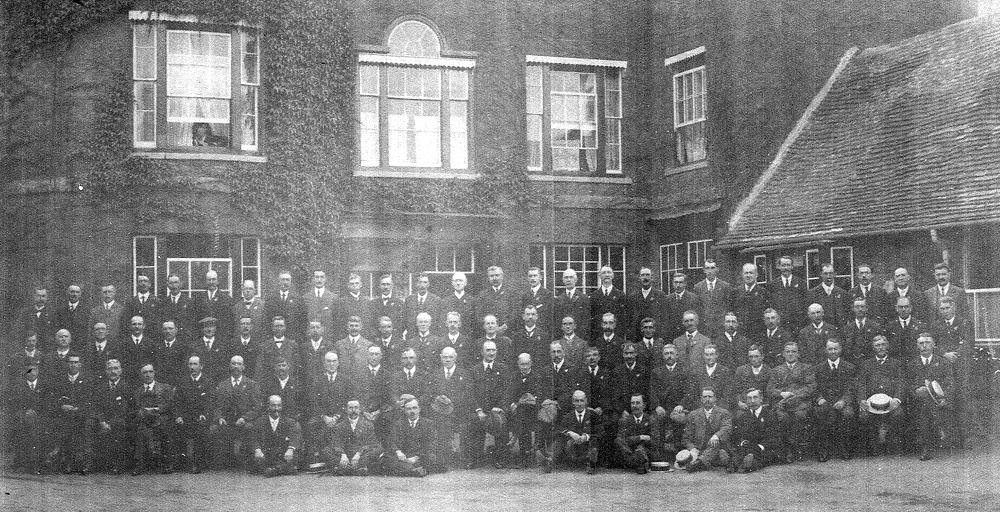World War I - Life goes on
Daily life in the town did not cease to function during the conflict. In some respects it carried on as it always had. In other ways it was changed forever and some of the aspects of life which were altered because of the war are still with us today.
Governance
Royston Urban District Council met every month as did the Board of Guardians.
The courts continued to sit and many cases were summarised in articles in the Royston Crow.
Entertainment
Horse racing continued with the involvement of the stables at the Banyers, the trainers being Captain Whitacker and, later, Mr. Pope.
People could still visit the cinema which, at that time, stood where the Barkway Road meets the A10.
Food and drink
The market provided the produce that the townsfolk needed.
The price you would have to pay for for foodstuffs was fixed to avoid profiteering. Restrictions were placed on brewing to conserve supplies of wheat and barley. Rationing started in 1918.
Also ...
During the period of the war plans were laid to build the Catholic Church. These were drawn up by Fr. Benedict Williamson who, prior to joining the priesthood, had studied as an architect. He also served in France as a Padre on the Western Front. The construction continued, albeit very slowly due to the lack of materials and builders required to complete the work. It was consecrated in 1919 with Fr. Williamson briefly the parish priest.
Zeppelins flew over the town but, fortunately, did not cause any damage.
Special constables

Hertfordshire Special Constabulary, Royston Section, 7th August 1919 photographed at the rear of the Old Bull hotel.
Throughout the war local able-bodied men who remained in the Town were recruited to Home Defence and the ranks of the Special Constables. These were supported by the Boy Scouts, who acted as messengers.
Defence of the Realm Act, 1914
The Special Constables were charged with enforcing the Defence of the Realm Act, passed in August 1914, which effectively introduced martial law. It allowed the censoring of the press, prohibition and rationing (eventually introduced in 1918), the seizure of land and buildings for the manufacture of military equipment. It introduced daylight saving time and led to the opening of the factories to women workers. Curiously to also banned whistling in the street, bonfires and flying kites.
On the lighter side - Reports from The Crow newspaper
30th June 1916
"A large monkey, belonging to Mr. Birne of the Red Lion on Market Hill, came out on the spree and appeared to be thoroughly enjoying himself and affording considerable fun to the boys who were chasing him about. This morning (Friday) he was enjoying strawberries in the gardens of Earls Hill House and, when the gardeners threw things at him, he retaliated by climbing an apple tree and pelting them with apples."
On the same day there was this report :
"Mr George Machon of Barley, had amongst his birds, a chicken with four legs. Much discussion took place about this dual legged bird, whether it would turn out double in other respects, such as laying a double quantity of eggs and being able to move twice as rapidly, if it would beat the "Early Bird" and catch two worms."